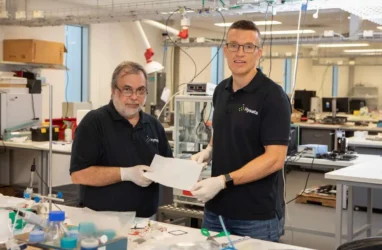Feed aggregator
Indonesia must phase out 3 GW of coal annually to meet 2040 target, analysis finds
Investors with $6.5 trillion of assets see mixed results in seafood sustainability engagement
Four of UK’s oldest nuclear plants to run for even longer as Hinkley Point delayed
EDF extends life of reactors to ‘boost energy security’ and bridge gap before new Somerset project starts up
Four of Britain’s oldest nuclear power plants will continue running for more than a decade longer than initially planned to help bridge a gap before the delayed Hinkley Point nuclear station starts up.
The owner of Britain’s nuclear plants, the French energy company EDF, said it had agreed to extend the lifetime of its reactors yet again to “boost energy security and reduce dependence on imported gas”.
Continue reading...New Zealand auction partially clears with 4 mln NZUs sold
Protection deal for Amazon rainforest in peril as big business turns up heat
Exclusive: With Brazil’s politicians, agribusiness organisations and global traders piling on the pressure, the highly successful 2006 Soy Moratorium is under threat
One of the cornerstones of Amazon rainforest protection – the Soy Moratorium – is under unprecedented pressure from Brazilian agribusiness organisations, politicians, and global trading companies, the Guardian has learned.
Soy is one of the most widely grown crops in Brazil, and posed a huge deforestation threat to the Amazon rainforest until stakeholders voluntarily agreed to impose a moratorium and no longer source it from the region in 2006.
Continue reading...North Dakota coal plant CCS project loses lead developer despite DOE support
California power emissions drop YoY in October despite renewables receding, natural gas demand rising
EU parliament, countries agree to delay anti-deforestation law
FEATURE: No sign of Canada’s 2035 climate target, despite mandate by law
Delays cause CO2 pipeline developer to withdraw permit application in Iowa
Women strongly opposed to nuclear power, just one in three men willing to live near one
The post Women strongly opposed to nuclear power, just one in three men willing to live near one appeared first on RenewEconomy.
Global markets are likely to withstand a Trump-led US withdrawal from the Paris Agreement
Australia could build a $3 billion industry making hydrogen electrolysers, CSIRO says
The post Australia could build a $3 billion industry making hydrogen electrolysers, CSIRO says appeared first on RenewEconomy.
EU earmarks over €4 bln from ETS revenues for cleaner cars
Vattenfall pauses CCS plans in Sweden -media
Too much focus on host country risk in global carbon trade, says project developer
Wolves to lose protection, as EU lowers bar for shooting wildlife
Downgrading species’ protection status for political gain puts decades of conservation efforts at risk, says WWF
Europe’s wolves will lose their “strict protection” status, alarming conservationists who fear for the survival of an animal brought back from the brink of local extinction.
A committee charged with saving wildlife took the wolf’s protection status down a notch on Tuesday after members voted through a proposal from the European Union that lowers the bar for shooting a wolf.
Continue reading...Cop29 gave us a Putin-friendly deal – and a glimpse of the dark future of climate talks | Fiona Harvey
The Baku Cop29 talks were marked by division and self-interest, with rancorous meddling right until the end
- Fiona Harvey is an environment editor at the Guardian
When I first visited Azerbaijan this spring, one fixture of the Baku skyline was unmissable. The bright orange of flaring – the product of the oil and gas extraction that makes up 90% of Azerbaijan’s export revenues – lit up the night sky, not far from the Olympic stadium, where nearly 200 nations would gather in November for the Cop29 climate summit.
Flaring burns methane, a powerful greenhouse gas, and is a major source of carbon emissions. If all the world’s flared gas were captured instead, it could power sub-Saharan Africa. But that entails installing new equipment, so producers don’t bother.
Fiona Harvey is an environment editor at the Guardian
Continue reading...




